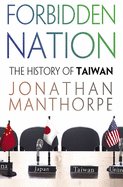Financial TimesBy Gary Schmitt and Daniel Blumenthal
Published: 02 March 2006
The last thing America is looking for is another crisis. With its hands full in Afghanistan and Iraq, and talks with North Korea and Iran going nowhere, that is entirely understandable. But even while attention was focused this week on the more positive theme of US-India relations, a potential new crisis was brewing elsewhere in Asia, this time around Beijing and Taipei.
In early February, the Pentagon issued its Quadrennial Defence Review, a strategic review designed to guide US defence thinking over the next four years. China was the only country highlighted in the 90-plus-page report, with a warning that its decade-long, double-digit increases in military spending had “already” put “regional military balances at risk”. China, the review said, “has the greatest potential to compete militarily with the United States”.
At the same time, Washington has begun to adopt a “tough love” approach to China’s trade policies. When the White House released its 2006 economic report, it explicitly tied America’s record trade deficit to Beijing’s decision tightly to limit the renminbi’s appreciation on global currency markets. Putting it more bluntly, John Snow, US Treasury secretary, recently told Congress that China’s leaders “have not lived up to what they said they would do” on this front and warned that the country risked being branded a currency “manipulator” by his department if it did not change policies by mid-April.
Similarly, the Bush administration is unhappy about China’s patchy compliance with its World Trade Organisation commitments, especially in the areas of intellectual property rights, labour rights and domestic market access. As a result, the US Trade Representative’s Office is establishing a “China enforcement task force” to help prepare WTO non-compliance cases for the government.
Add to this the tiny bit of co-operation the US gets from China on Iran and North Korea, and the ample trouble China brings with its policies of support for Zimbabwe, Venezuela, Cuba, Sudan and other trouble spots, and Americans increasingly see a country that is not especially interested in becoming a responsible “stakeholder” in the current international system. China and its leaders will do the minimum required to keep the US off its back – but not more than that.
Meanwhile, there are new tensions in cross-Strait relations. This week, Chen Shui-bian, Taiwan’s president, announced that he was getting rid of the National Unification Council. The council, whose function was to set the conditions for unifying Taiwan with mainland China, was created in 1990 when Taiwan was ruled by one party, the Nationalists, and has been operationally moribund for years. Beijing’s reaction – neuralgic to any suggestion that Taiwan is anything but a province of the mainland – was to call Mr Chen’s decision “a grave provocation”. In Washington, the reaction was one of unhappy but muted acceptance.
The immediate cause of the flap was the promise made by Mr Chen in his 2000 inaugural address not to scrap the council. The promise was part of a series of pledges designed to reassure Washington that the new president would not upset America’s “one China” policy. But the underlying cause is that, as Taiwan’s democracy has taken hold and flourished over the past decade, so has the belief among Taiwanese that they are a sovereign, self- governing entity.
Even with the hyper-economic activity between mainland China and the island, fewer than 10 per cent of Taiwan’s population consider themselves simply “Chinese”, according to surveys. Getting rid of the council was one way for Mr Chen to signal that his government was tired of the way the world chose ignore that fact and allow China to squeeze Taiwan military and diplomatically.
This is by no means a partisan position. Ma Ying-jeou, the head of Taiwan’s Nationalists, recently said that his party believed “the people of Taiwan have full authority to determine their future, whether it be unification with China, declaring independence or maintaining the status quo across the Taiwan Strait”. “As citizens of a democratic country, Taiwanese are free to choose which option to pursue,” he added.
Not only do Mr Ma’s remarks suggest that the fuss over the unification council’s fate is overblown, they also indicate that both major parties in Taiwan agree the country already is a sovereign entity with a democratic will of its own. His statement – that Taiwan’s future will be decided by its people – puts the lie to the notion that the cause of cross-Strait tensions is just the “troublemaking” of Mr Chen.
The political tectonic plates that divide the Taiwan Strait are shifting, and they are not moving closer toward each other. Understandably, the US wants to maintain a policy – what it calls the “status quo” – that has preserved the peace and allowed both states to prosper economically for some time. But how long can it do so when China’s ambitions to be a great power pull in one direction and Taiwan’s democratic identity pulls in another?
Gary Schmitt is director of strategic studies at the American Enterprise Institute, and Daniel Blumenthal is AEI’s resident fellow in Asian studies.


